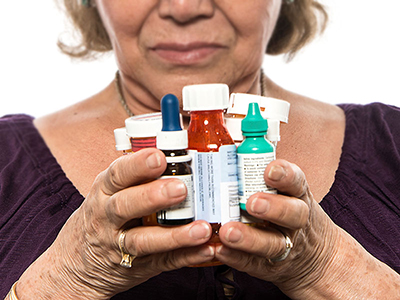
Source: www.medscape.com
Some people take to social media to complain that their doctor asks too many questions at a time when they are not well. It is understandable that when someone is not at their best, they do not feel like answering like answering what may seem like an endless list of questions about their condition. And why would the doctor care what other medication I am taking or have taken? Why not just prescribe me some new pills and send me on my way to recovery?
The answer is simple. Not asking questions about your condition or your drug history can put you in danger. (Plus, doctors are not mind readers, we cannot get the necessary information without asking).
So, what should you tell your doctor?
If you are on any long term medications for conditions such as hypertension, diabetes or other chronic conditions, it is very important to inform the doctor. Even if your current illness is something completely different and seemingly irrelevant. Some conditions such as infections may affect these chronic conditions and require an adjustment to your previous medication as well as new ones to treat the new condition.
The medication you are currently on also affects the choice of medication prescribed to you. Some drugs interact with other drugs, for example certain antibiotics can cause increased risk of bleeding in patients taking warfarin. Drug interactions also include drugs that many patients forget are drugs, such as oral contraceptive pills. Some antibiotics can cause the oral contraceptive pill to be less effective (an unintended pregnancy!).
You should also tell your doctor if you have any known allergies to any medication. If you have ever experienced rashes, facial puffiness or shortness of breath after taking any medication, it is IMPORTANT to tell your doctor. The same reaction could happen if you receive the medication again, or even worse.
“But it’s so hard to remember all the strange drug names …”
Yes, it may be a bit difficult for non-medical people to remember the names of medication (especially if there are many of them). However, it is important, so an effort has to be made. I cannot recall how many times patients have answered “the small white one… round one… oval one…” when asked. Then there are the patients who plonk a plastic bag full of unlabelled pills and tablets of dubious origin. To help (save) your doctor, here are a few simple tips:
- Always carry your appointment book/discharge summary/referral letter – doctors often write your medications and other important medical information
- Use your smartphone to keep a list of your medications
- Inform your family members (spouse/adult children) about your medication history
So, the next time your doctor asks you about your drug history, don’t get annoyed, be patient and answer as best you can. Help us to help you.
Dr Hidayah is the Chief Editor of The Malaysian Medical Gazette. She is a medical doctor currently pursuing her PhD in pharmacology.
References:
- Nutescu, Edith, Ittiporn Chuatrisorn, and Erika Hellenbart. “Drug and dietary interactions of warfarin and novel oral anticoagulants: an update.” Journal of thrombosis and thrombolysis3 (2011): 326-343.
- https://www.crediblemeds.org/healthcare-providers/drug-drug-interaction
[This article belongs to The Malaysian Medical Gazette. Any republication (online or offline) without written permission from The Malaysian Medical Gazette is prohibited.]
